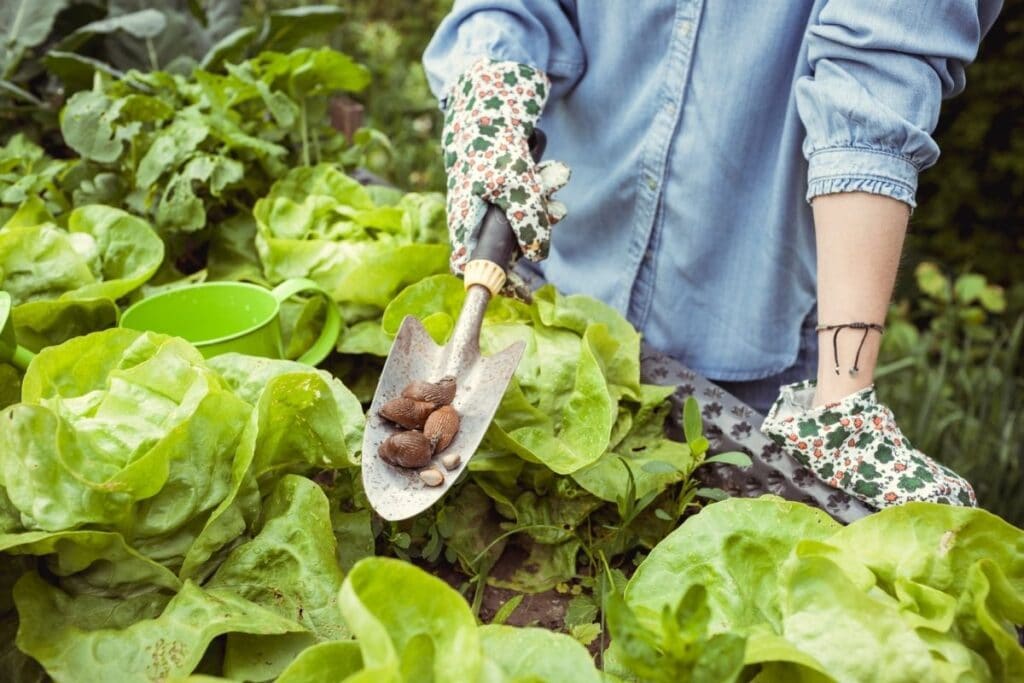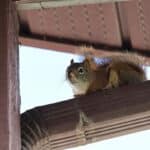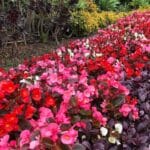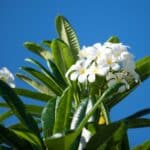Slugs can cause a lot of damage to your garden and flower pots. They can be seriously destructive for their small size.
You can keep slugs out of your garden very easily through traps, manual removal, and deterrence. You can grow plants that they detest, build barriers, and add roughness to the area’s texture around the plants.
We are going to cover the different methods of deterrence. We will also discuss the different ways of dealing with slugs in the garden.
Why Are There Slugs in My Garden?
Slugs enjoy garden beds because of all the moisture readily available to them. They prefer your garden right after it’s been watered. It helps to replace the moisture they lose as they secrete the mucus they move on.
Many different animals eat slugs, including birds and small mammals. If you have proofed your garden against these predators, the slugs will be more abundant.
Any plant that you find tasty, slugs will find delicious as well. They will eat your veggies when they are at any stage of development but prefer them when they are still just seedlings.
Beneficial bacteria and fungi make your soil healthy. They also make slugs healthy, offering them the probiotics needed to break down dead leaves and other decaying materials.
If you already have a few slugs in your garden, they will act as an attractant for more slugs. It’s important to have garden slug control strategies that minimize the damage.
How Do I Stop Slugs Eating My Plants?
You can add texture to your garden to make the path rougher for slugs. This will act as a deterrent and prevent them from eating your plants.
Eggshells and coffee are also natural deterrents. Adding them to your moist soil will help keep slugs out of your plants.
You can also grow herbs in your garden to naturally deter slugs. The best herbs include mint, lavender, sage, rosemary, creeping thyme, and parsley.
What Keeps Slugs Away Naturally?
There are several methods for keeping slugs away naturally. One very affordable natural approach is to remove the slugs manually. You can either drop them in a bucket of soapy water to kill them or take them to an area and let birds and snakes take care of them.
You can plant trap crops that you will sacrifice to the slugs to trap them. Pick something they enjoy and grow it specifically for them to eat. Then focus on that plant for all of your slug-catching endeavors.
Beer traps are another natural method for catching slugs. Set up a half-buried container and half fill it with beer. The slugs will be attracted to it, fall in, and be trapped.
A grapefruit trap is also an option. Hollow out one half of a grapefruit and turn it upside down outside. At night, the slugs tend to go to this grapefruit half and hide inside, allowing you the ability to carry them all off to another location.
What Smells Keep Slugs Away?
Slugs cannot stand the smell of coffee grounds. You can sprinkle used coffee grounds in your garden soil, planters, or the entrance of your garden. Because the wind can blow the grounds away and the rain can wash them away, you will need to replace them routinely.
Alternatively, you can make a spray with the coffee grounds that you can apply directly to your garden plants. It will not harm your plants but it will need to be continuously added to ensure that it’s working.
Animal hair is another smell that slugs just do not like. The reason behind this is that slugs are the prey of many animals. For this method to work, you will have to frequently replace the animal hair as the rain and wind will continuously remove it.
Garlic contains the compound allicin, which is a natural slug repellent. The potent smell of garlic drives slugs away.
You can take fresh garlic, then chop and crush it up. Then place the pieces in the soil or planters.
Alternatively, you can make a spray with garlic. Do this by boiling garlic in water and putting the water in a spray bottle. This can be sprayed directly onto your plants.
If you don’t have access to fresh garlic, you can use powdered garlic. Simply sprinkle it onto the soil near your plants.
Other alliums, like onions and shallots, can be used; however, their smell is nowhere near as powerful as that of garlic. Additionally, note that ornamental alliums grown for their blooms will not work to deter slugs.
Herbs can also be used to deter slugs because of their smells. For instance, slugs cannot stand the smell of rosemary. You can use this spice just like coffee grounds and just sprinkle it on the soil.
Additional herbs that slugs cannot stand the smell of include thyme, mint, and sage. Another way to protect your garden is to grow these plants.
There are some scented flowers that slugs avoid at all costs as well. These included lavender and roses. You can plant lavender throughout your garden to help keep slugs away from their favorite plants to eat, like hostas.
Finally, slugs hate the smells of essential oils. You can make your own spray by mixing some essential oil and water.
Vinegar Slug Control
Vinegar can act as a natural pesticide. Its ingredient acetic acid dies out garden pests like slugs and causes them to dry out and die. You can use either white vinegar or apple cider vinegar.
Once you put your vinegar of choice into a spray bottle, you will need to locate the slugs in your garden. Remember, they enjoy cool, moist, shaded areas. If you’re still having trouble finding them, try searching at night.
Once you find the slugs, spray the vinegar directly on them to dry them out. You can either spray the remains away with a hose or leave them in the garden. When using the vinegar, try to avoid spraying the plants as the vinegar will damage them.
Whenever you see new slugs, repeat the process. Additionally, you may not get all of the slugs in the first round.
Vinegar can also be used as a preventative measure by making a perimeter around your plants. You will need to freshen this up to maintain it routinely.
What Do Slugs Hate?
Slugs do not like to crawl over anything dry or scratchy. This includes things like lime, coarse sawdust, diatomaceous earth, cinders, gravel, and sand.
Epsom salts serve two purposes. They will help prevent magnesium deficiency in your plants while deterring the slugs.
Slugs hate salt and will not go across it. The salt is a desiccant and will dry them out if they cross over it. So sprinkle it around your plants.
You can also collect a good bit of cat, dog, or human hair to place around your plants. Slugs will not go over this hair.
Placing copper foil barriers around your plants is another great option. Slugs cannot stand copper barriers as they give them a small shock when they come into contact with them.
How to Get Rid of Slugs and Snails With Coffee
Coffee’s major ingredient caffeine can either deter or kill slugs and snails, depending on the concentration level it’s applied with. The greater the caffeine content, the better the reaction. However, caffeine also kills beneficial insects and should be used sparingly.
You will need used coffee grounds for this method of repelling slugs and snails. You can combine the coffee grounds with the topsoil in your garden or just sprinkle it around your plants.
If the slugs and snails are making a home inside your home, you can sprinkle the coffee grounds around their hiding places. For best results, you will want to repeat this every 3 weeks.
If you have a severe infestation, this method is not going to work for you. You will need to seek out the assistance of a professional.
How to Control Slugs Climbing Up Pots
Slugs will not travel over gritty substances to reach your pots. These include crushed eggshells and sharp sand.
You can also place slate or gravel around your pots. The sharp edges make traveling very uncomfortable for the slugs so they typically just avoid it altogether.
Mulch is very inconsistent and rough in texture. This makes it ideal for placing around your pots to keep slugs away.
You can also use WD-40 to set up a barrier around your containers, effectively preventing slugs from climbing your pots. WD-40 is waterproof so it will remain effective after rain or watering.
Make sure to leave no gaps when spraying the WD-40. Protect your plants from the chemical as you apply it. The WD-40 should last an entire season.
Vaseline can be used in the same way. However, it is messy and will need to be replaced often.
You can also attach copper wire around your plant containers. The slugs’ mucus will interact with the copper giving them an electrical “shock” that is uncomfortable. It will deter them from climbing the container.
How Do I Stop Slugs in My Garden?
You can grow plants that act as a natural pesticide or deterrent to slugs. Some of these slug resistant plants include Astrantia, fennel, rosemary, rue, anise, and wormwood.
Another suggestion is to remove any possible shelter a slug might seek in your garden. They enjoy bricks, large logs, and garden furniture. The goal is to expose them to their natural predators.
You can also make a beer trap. You will create this by burying half a container and half filling it with beer near your vulnerable plants.
Alternatively, you can create a prickly barrier. Crush eggshells, use pine needles, or grab some thorny cuttings to create this type of barrier and reuse your unwanted foliage.
You can also set up a lure with some lettuce or dried cat food in a desirable, shady spot. Once the slugs come for the bait, you can scoop them all up and remove them at once.
Nematodes are also an option. They are soil-dwelling microorganisms and are a natural parasite of the slug. All you need to do is mix them with water and add them to soil that is over 5℃.
Slugs can cause a lot of damage, so it’s essential to have a plan to ensure they do not gain access to your garden or flower pots. Explore various options, from traps to walkways, and consider using organic slug pellets as part of your pest management strategy.
These natural alternatives allow you to protect your plants without resorting to harsh chemicals.
FAQs
What repels slugs naturally?
Natural repellents for slugs include diatomaceous earth, which creates a barrier they find difficult to cross, and copper tape, which can give them a mild electric shock. Crushed eggshells can also deter slugs by making the ground uncomfortable for them to travel on.
What scent keeps slugs away?
Certain scents, such as garlic and mint, are known to repel slugs. You can create a spray with water and a few drops of essential oil (e.g., peppermint or tea tree) to apply around your plants to deter slugs.
Do slugs avoid coffee grounds?
Yes, slugs may avoid coffee grounds due to the texture and potential caffeine content, which can be toxic to them. Sprinkle coffee grounds around plants to create a barrier that slugs may be reluctant to cross.
*image by epiximages/depositphotos







